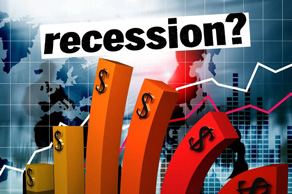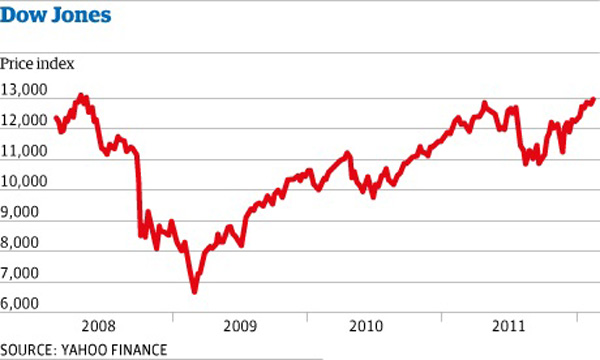What is a recession and what are its consequences for the stock and currency markets?
Lately, we have been hearing and reading more and more about the impending recession in the US economy and other countries.

But what exactly does this market condition represent, and what consequences might it have for the value of securities or the national currency?
A recession is a period of economic decline characterized by two consecutive quarters of negative growth in real gross domestic product (GDP).
Recessions are typically accompanied by rising unemployment, falling asset prices, and a contraction in economic activity.
- Financial crises
- Energy crises
- Reduction in consumption
- Political upheaval
- Natural disasters
What does a recession mean for the stock and currency markets?
The impact of a recession on the stock and currency markets can be significant. In the stock market, stock prices typically decline, leading to a loss of capital for investors.
Due to losses, companies stop paying dividends, which further cools interest in the stock market.

As a result, investors are selling their shares and preferring to invest in more stable assets. As the value of securities falls, so do the prices of major stock indices .
A weakening economy will likely lead to a decline in the price of the currency of the country experiencing a recession.
In such situations, investors traditionally buy Swiss francs and gold, and more recently, cryptocurrencies .
The 2008 US recession
An excellent example of a recession is the economic crisis that occurred in the United States in 2008
It was one of the most severe crises in US history, caused by a number of factors, including the mortgage crisis, the collapse of the subprime lending industry, and the stock market crisis.
The 2008 recession led to millions of job losses, declining incomes, and increased poverty. It had a significant negative impact on stock and currency markets.

The stock market has fallen 50% from its 2007 peak. The currency market has also been volatile, and the US dollar has depreciated against other currencies. For example, the dollar has fallen by around 25% against the Swiss franc.
But if a recession has already arrived, it is important to remain calm and not make hasty decisions after the price has reached its bottom.
Investors should diversify their portfolios in advance and invest in assets that have a low correlation with the stock market. Don't forget to set stop-loss orders on trades, as this is the only way to protect against sharp price fluctuations.
The duration of a recession can vary. Some recessions end within a few months, while others can last for several years. The duration depends on the severity of the negative changes in the country's economy and finances.

Governments and central banks can take measures to mitigate the impact of a recession. These measures may include:
- Lower interest rates
- Expansion of money supply
- Provision of state guarantees
- Investments in infrastructure
These measures may help shorten the duration of the crisis and make it milder, but they cannot completely eliminate the effects of the recession.
investment portfolio now and, first of all, abandon investments in the US dollar and shares of American companies.

